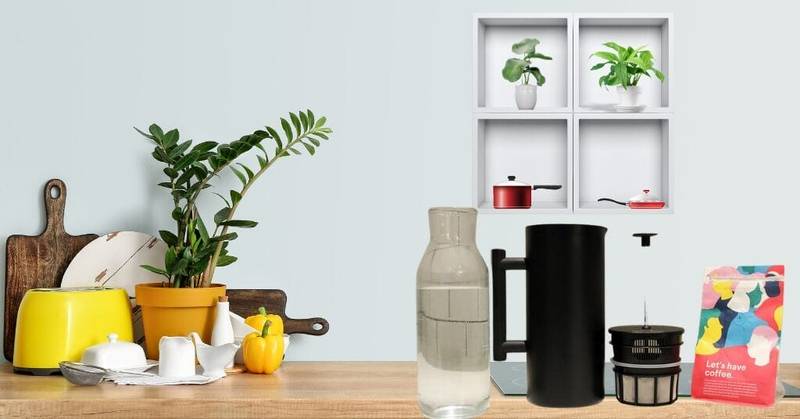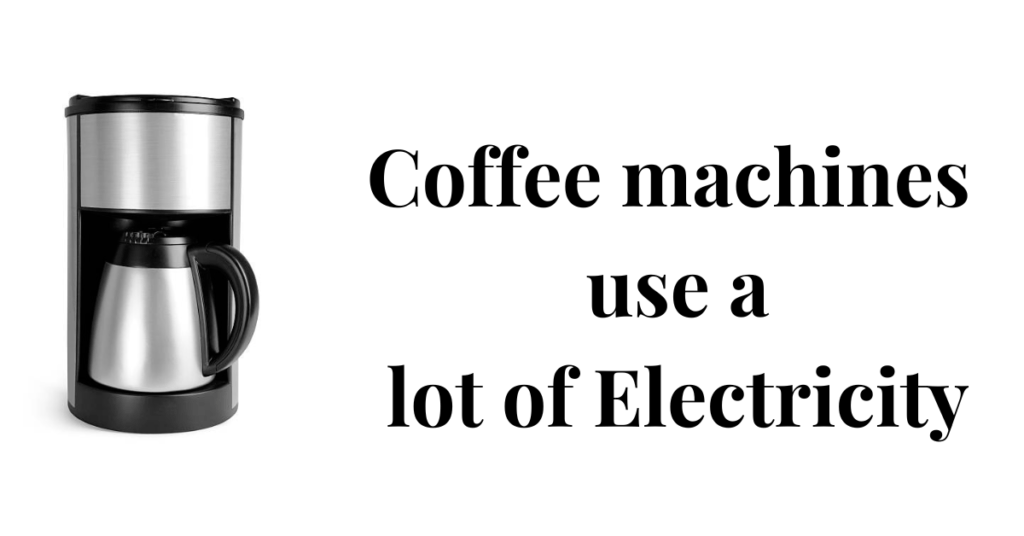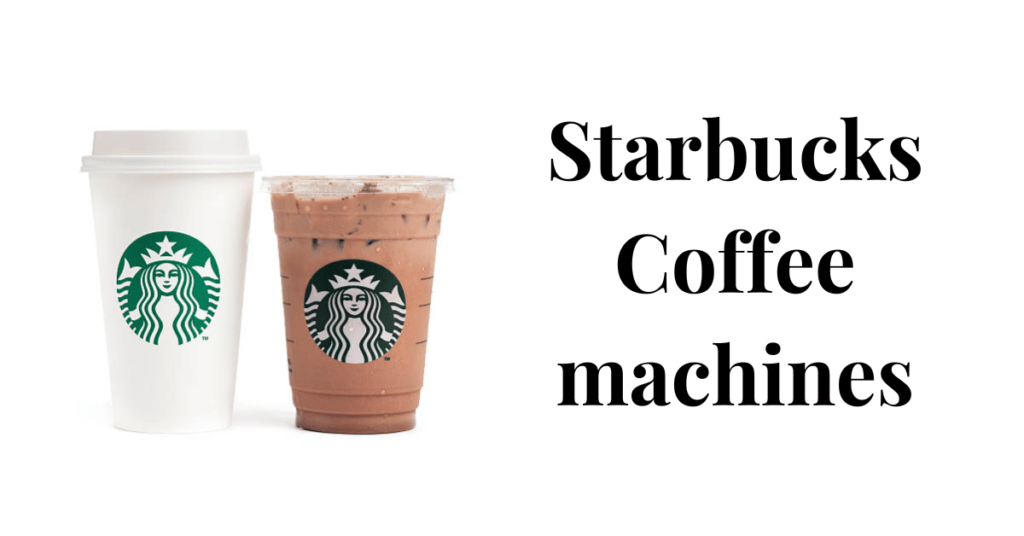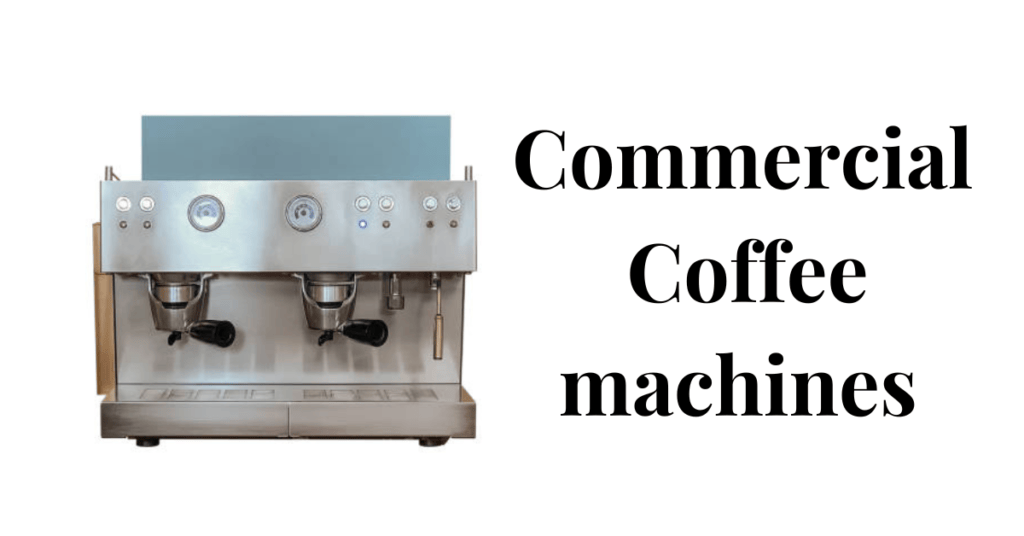Coffee is one of the world’s most loved beverages, and using a good coffee maker is key to flavor. Some enthusiasts even try to double brew coffee grounds to intensify the taste. This article explores coffee makers, their water filtration, and how they impact the quality of your daily cup.
As an affiliate site, we are associated with the amazon. We might receive a commission when you use links or recommendations on our website to make qualified purchases. The cost you pay for the goods or services is unaffected by this.
Table of Contents
Understanding Coffee Makers
Coffee makers are our faithful travel companions on the path to a great cup. But with so many options available, picking the best one can take time and effort. The following summary will help you in your coffee-making endeavours:
Types of Coffee Makers
Before diving into the water filtration aspect, it’s important to understand the various types of coffee makers available on the market:
- Drip Coffee Makers: These are the most common coffee makers in many households and offices. They work by dripping hot water through ground coffee placed in a filter.
- Single-Serve Coffee Makers: Popularized by brands like Keurig be repaired, these machines brew one cup of coffee at a time using pre-packaged pods.
- Espresso Machines: These machines force hot water through hard-ground coffee to make high-pressure espresso shots.
- French Press: A manual coffee maker steers coffee grounds in hot water and then presses them through a metal filter.
- Pour-Over Coffee Makers: These require manually pouring hot water over coffee grounds placed in a filter, usually housed in a cone-shaped device.
Each type of coffee maker has a different mechanism and design, which influences whether or not it can filter water.
The Role of Water in Coffee Making

Water is a critical component in the coffee-making process. It makes up about 98% of a cup of coffee, so its quality significantly impacts the taste. Using clean, filtered water can enhance the flavour and aroma of your coffee, while poor-quality water can lead to a subpar drinking experience.
Importance of Water Filtration
- Taste: Chlorine and other chemicals in tap water can negatively affect the taste of coffee. Filtering these out ensures a purer and more pleasant flavour.
- Health: Filtering water removes harmful contaminants such as lead, pesticides, and bacteria, making it safer to consume.
- Machine Longevity: Using filtered water can reduce the buildup of limescale and other mineral deposits in your coffee maker, extending its lifespan and improving performance.
Do Coffee Makers Filter Water?
Not every coffee maker uses water filtration. While some models come with integrated charcoal filters to enhance flavour, most depend on you using filtered or high-quality tap water to achieve the best coffee flavour and extend the machine’s life.
Built-In Water Filters
Some coffee makers come equipped with built-in water filters. These filters are typically made from charcoal and are designed to remove impurities from the water before they reach the coffee grounds. Here’s a closer look at how they work:
- Charcoal Filters are common in many drip coffee makers and single-serve machines. Charcoal is highly effective at absorbing impurities and can remove chlorine, odours, and some sediments.
- Paper Filters: While primarily used for filtering coffee grounds, paper coffee filters can also catch some impurities present in the water. However, their effectiveness could be improved compared to charcoal filters.
External Water Filters
For coffee makers that do not have built-in filters, users often turn to external coffee makers filter water systems. These can include:
- Pitcher Filters: Brita and other brands offer pitcher filters that can be used to pre-filter water before adding it to the coffee maker.
- Faucet Filters: Attach directly to your kitchen faucet and filter water as it comes out, providing clean water for coffee making and other uses.
- Under-Sink Filters: Installed under the kitchen sink, these systems provide a dedicated filtered water line, ideal for coffee makers and other appliances.
Manual Coffee Makers and Water Filtration
Manual coffee makers, such as the French press and pour-over systems, do not have built-in water filters. Users must rely on external water filtration methods to ensure the water used is clean and impurity-free.
Impact of Water Quality on Coffee Taste
The quality of water used in brewing coffee can dramatically influence the taste and overall experience of the beverage. Here are some key factors to consider:
Mineral Content
Water with high mineral content, often called “hard water,” can produce a bitter or metallic taste in coffee. Conversely, water that is too soft can make coffee taste flat. Water should have a balanced mineral content to enhance the natural flavours of the coffee.
pH Levels
The pH level of water also affects coffee taste. Too acidic or alkaline water can alter coffee’s flavour profile, making it taste off. The optimal pH level for brewing coffee is around 7, which is neutral.
Contaminants
Chemicals like chlorine and other contaminants can impart undesirable flavours to coffee. Filtering these out ensures a cleaner, purer taste that allows the true characteristics of the coffee beans to shine.
Choosing the Right Water Filter for Your Coffee Maker
Upgrade your coffee experience by getting the ideal water filter for your coffee maker! Both great coffee and the longevity of your equipment depend on clean water. Here’s how to select the appropriate filter for your water conditions:
Compatibility
Ensure that your chosen filter is compatible with your specific coffee maker model. Some brands offer proprietary filters designed to fit their machines perfectly.
Filtration Efficiency
Look for filters that effectively remove many impurities, including chlorine, heavy metals, and sediments. Charcoal filters are generally a good choice for this purpose.
Replacement Frequency
Water filters need to be replaced periodically to maintain their effectiveness. Check the manufacturer’s recommendations for how often to replace the filter and consider the cost and availability of replacement filters.
Ease of Installation
Choose a filter that is easy to install and replace. Some filters can be installed with a simple twist, while others require more complex procedures.
More Guides You Can Read:
- Do Coffee Machines need Servicing: Understanding should you get your Coffee Machine Serviced
- Can I take Coffee Machine on a Plane: Bringing your Coffee Machine along for the Flight
- Can Coffee Pot be left out overnight: Overnight Coffee: Safe, but Stale
- How long do Coffee Machines last: Exploring the Durability of Coffee Machines
- Can you descale Breville Coffee Machine with Vinegar: Breathe New Life Into Your Coffee Experience
FAQs || About coffee makers filter water
1. Do all coffee makers come with built-in water filters?
No, not all coffee makers come with built-in water filters. Many drip coffee makers and single-serve machines have this feature, but manual coffee makers like French presses and pour-over systems do not.
2. Can I use tap water in my coffee maker?
Yes, you can use tap water, but it is recommended to use filtered water to improve the taste and quality of your coffee and to protect your coffee maker from mineral buildup.
3. How often should I replace the water filter in my coffee maker?
The replacement frequency depends on the filter type and how often you use your coffee maker. Generally, charcoal filters should be replaced every two to three months.
4. Can I use bottled water in my coffee maker?
Yes, bottled water can be used, but choosing water with a balanced mineral content is important. Avoid using distilled or overly mineralized water.
5. What happens if I don’t use a water filter in my coffee maker?
If you don’t use a water filter, you may experience changes in the taste of your coffee due to impurities in the water. Additionally, mineral deposits can build up in your coffee maker over time, potentially causing damage.
Conclusion
In conclusion, while not all coffee makers filter water, many do, and they play a significant role in improving the taste and quality of your coffee. External filtration methods can provide similar benefits for those without built-in filters.
By ensuring that the water you use is clean and free of impurities, you can enhance your coffee-drinking experience and extend the life of your coffee maker. Whether you’re brewing a quick cup of instant coffee or enjoying a more elaborate espresso, paying attention to water quality is a simple yet effective way to elevate your daily brew.







